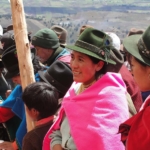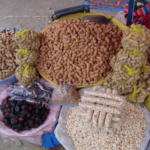


Fundacion AGRECOL Andes
Grupo Impulsor & Universidad Privada Boliviana (UPB)
Peru
5/2016—5/2019
There are national laws and local initiatives that support agroecology in Bolivia, but these policies and interventions continue to be minor and disarticulated, representing more of an opportunity than a reality. One local agroecology initiative in the city of Cochabamba is the EcoFeria, which Agrecol has been facilitating for almost a decade. This proposal intends to connect the EcoFeria and other agroecological initiatives into a more systematic and consequential Alternative Food Network (AFN) in Cochabamba. AFNs shorten the supply chain for ecological food and improves direct relations between small ecological producers and consumers and quality in terms of growing methods and varietal information of sustainably produced food. This provides benefits to producers and the environment, as well as to the health and nutrition of consumers. In terms of research on agroecology, the project with its partners will assess what the current state of the art is on the effects of pesticide use on food contamination, health-related effects on farmers, consumers and the ecosystem and determine to what degree they can continue to research on these topics through alliances with the food laboratories at the Universidad Mayor San Simon and/or effectively communicate to consumers what is known about the impacts of pesticide residues, processed foods and fresh fruit and vegetable consumption on nutrition and health. Ecological certification schemes are more in demand for the external rather than the internal market. However, apart from the issue of agroecology, there does seem to be a general awareness of processed foods and their negative impact on health among consumers in Cochabamba.
This project’s three major aims are:
1) Increase understanding and practice of ecological markets in an urban setting in Bolivia (Cochabamba)
2) Create a cross-sectoral learning platform around agroecological food systems
3) Expand the agroecological, local market in Cochabamba.
This project will benefit from the past six years of CCRP investment in AFNs and local food systems in Ecuador and Peru. One of the first activities of this project, will be to attend a meeting with the other local food system projects to be up to date on the diagnostic tools and learning that the other projects have generated. This project will be able to validate and adapt these tools to a new context, which will provide insight on scaling mechanisms for local food system projects. The objectives of this project most closely align with those of the Community Basket projects in terms of forming a direct, agroecological market among consumers of various income levels and studying its impact on farmers and consumers. However, this project offers an important distinction in that the research and implementation team are located in the city they are going to study, have been working in this area for more than a decade, and have broad networks and social capital that they will be able to leverage in order to foment important changes in the food system through a platform that will extend to important actors throughout the foodshed.

